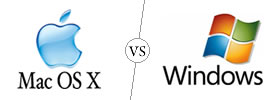Difference between Linux and UNIX
Key difference: Linux and UNIX are both types of operating systems. UNIX predates Linux. In fact, Linux is essentially a copy of the UNIX operating system, which over time has developed into a different OS.

Linux and UNIX are both types of operating systems. An operating system is a collection of software that manages computer hardware resources. It also provides common services for computer programs. The operating system is a vital part of the computer system software, without which the application programs will not function.
UNIX predates Linux. In fact, Linux is essentially a copy of the UNIX operating system, which over time has developed into a different OS. UNIX was originally created in 1969 for AT&T by its Bell Labs employees Ken Thompson, Dennis Ritchie, Brian Kernighan, Douglas McIlroy, Michael Lesk and Joe Ossanna. It was originally coded in assembly language. Then, in 1973 it was recoded into C language. This allowed it to be ported to other hardware.
Eventually, it was licensed to outside companies; this facilitated its evolution into various different branches. These various types of operating systems were developed by AT&T, other commercial vendors, universities such as University of California, Berkeley, etc., and non-profit organizations. BSD, Solaris, HP-UX, Sequent, AIX, Darwin, MINIX, Linux, FreeBSD, NetBSD, OpenBSD, and DragonFly BSD, are all based on UNIX to some extent.
These various UNIX operating systems are now commonly used in servers, workstations and mobile devices. The UNIX environment and its client–server program model have been essential in the development of the Internet.
UNIX was aimed at programmers and was meant to be used for developing software that would run on multiple platforms. UNIX was designed to be ‘portable, multi-tasking and multi-user in a time-sharing configuration’. It has various qualities such as ‘the use of plain text for storing data; a hierarchical file system; treating devices and certain types of inter-process communication (IPC) as files; and the use of a large number of software tools, small programs that can be strung together through a command line interpreter using pipes, as opposed to using a single monolithic program that includes all of the same functionality.’
As compared to UNIX, Linux is fairly new; Linux was written by Linus Torvalds in 1991. He based it completely on UNIX, but he had written it from scratch, i.e. not taking any coding directly from UNIX. Torvalds was helped in this endeavor by hackers across the Internet.
 Linux is technically a kernel. A kernel is the central component of many operating systems. The Linux kernel was first released on 5 October 1991 by Torvalds. However, the term Linux has come to refer to the full fledged operating systems built with the Linux kernel. These should be correctly called as Linux distributions or Linux-based operating systems. Some of the popular Linux distributions include Ubuntu, Fedora, SuSE and Debian.
Linux is technically a kernel. A kernel is the central component of many operating systems. The Linux kernel was first released on 5 October 1991 by Torvalds. However, the term Linux has come to refer to the full fledged operating systems built with the Linux kernel. These should be correctly called as Linux distributions or Linux-based operating systems. Some of the popular Linux distributions include Ubuntu, Fedora, SuSE and Debian.
Linux was originally developed as a free operating system for Intel x86-based personal computers. Since then, Linux has been ported to various other computer hardware platforms. In fact, Linux has been ported to more platforms than any other operating system.
Linux is commonly used in servers, mainframe computers and supercomputers. According to the ‘Top500 OS chart,’ Linux is used in more than 90% of today's 500 fastest supercomputers. This includes the top 10 fastest supercomputers. In addition, Linux is also run on embedded systems such as mobile phones, tablet computers, network routers, building automation controls, televisions and video game consoles. In fact, Android, one of the most popular smartphone operating system is actually built on the Linux kernel.
Linux is available freely under the GNU License, which also allows the user to make any changes to the Linux kernel as along as those changes are made available to the general public and for free. However, while some variants of UNIX are available to as open source, many of the company developed UNIX OS are not.
Additionally, from a layman’s perspective, UNIX is much harder to use than Linux, as UNIX requires more coding knowledge. However, this may actually differ with the version of OS in use.
Image Courtesy: colocationamerica.com, hackerpaparazzi.com









Add new comment